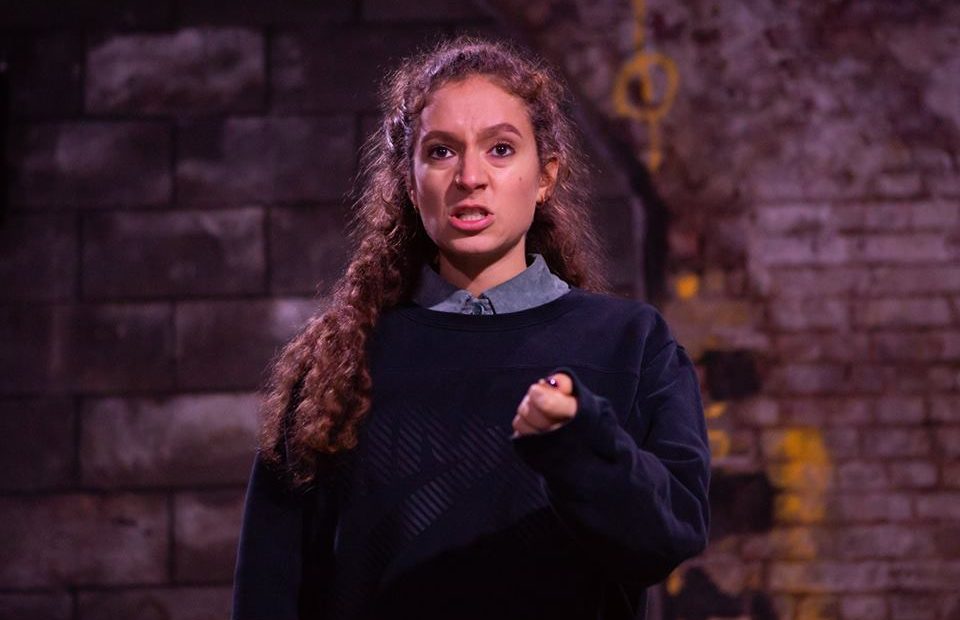Lola

The spectre of Nabokov’s Lolita has haunted the Western canon for decades, in turn reviled, pitied and relentlessly sexualised, referenced everywhere from academic ivory towers to manga culture. To take this perpetually relevant figure as a starting point for an adaptation is risky, with the majority either falling into the homage or just contributing to the ceaseless and uncomfortable obsession with the character. In Lola, however, writer Hannah Nixon and director Melissa Dunne leave the subject of the original novel as a quiet hint and a subtle reminder of the cultural baggage that follows their heroine, Lola. Following the 18-year-old through sixth form as she deals with the constant attention of her male classmates and teachers, they create something that is simultaneously keenly current and completely timeless.
The realism and subtlety of Nixon’s script is key to the success of this production. Through dialogue that appears casual and unweighted, she continuously maps out the vectors and negotiation of power between two teachers and a student as they sort through layers of sexuality, hierarchy and gender. The dialogue of Jez, the male teacher whose relationship with student Lola is constantly teetering on the edge of the appropriate, is particularly well-rendered. The nuance of the sexism, gas-lighting and power play that women tackle daily from men is often portrayed hammily and clumsily, oversimplifying the issue. In Nixon’s writing, however, the deftness of his manipulation is clear as he continuously senses how to twist a situation and how to pull back control just as he seems certain to have lost it.
The actors, meanwhile, take full advantage of the script and give an excellent performance. Rob Ostlere is incredibly unsettling as Jez, and Joanne Ferguson is his perfect foil as a teacher completely dedicated, completely earnest and yet completely overwhelmed by the complexity of the situation she is trying to handle. It is Gemma Barnett as Lola, however, who stands out, as she perfectly captures that specific combination of fury, certainty and complete vulnerability that comes with adolescent femininity.
The only parts in which this play falters, therefore, are when it steps back from the precise dialogue and well-rendered characters into a few dream sequences in which the other actors break character to perform as Lola’s inner voices and anxieties. These segments break the flow of the scenes and seem to belong to a different, less accomplished drama.
Regardless of these moments, Lola is an exceptional piece of theatre by some exciting new talent. It finds the universal and the human within a zeitgeisty, news-reel topic and reimagines Lolita as a whole person, funny, difficult and unapologetically complicated.
Cleo Henry
Vault Festival 2019: Lola is at the Cavern from 23rd until 27th January 2019. For further information or to book visit the show’s festival page here.
Read more reviews and interviews from our Vault Festival 2019 coverage here.
For further information about the event visit the Vault Festival website here.
























Facebook
Twitter
Instagram
YouTube
RSS